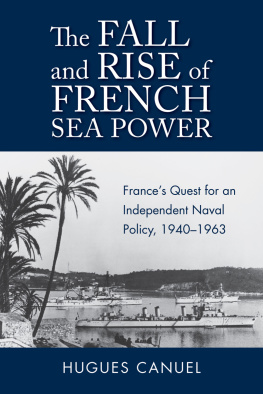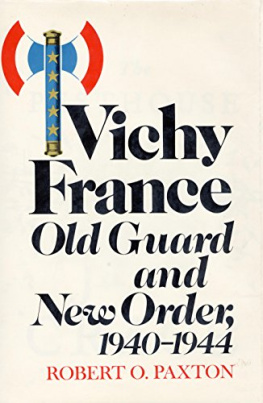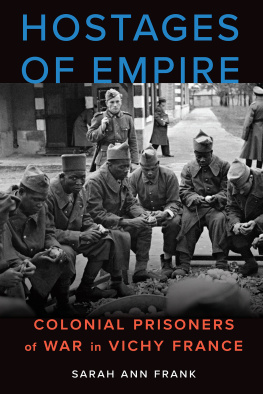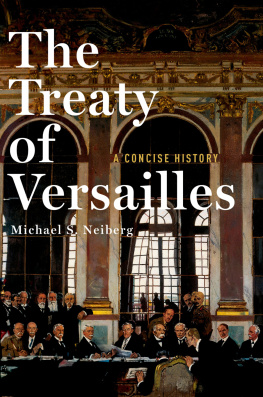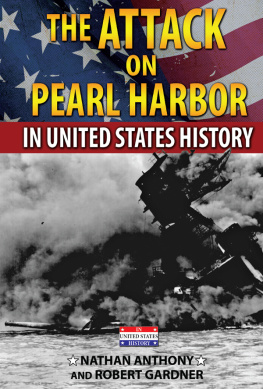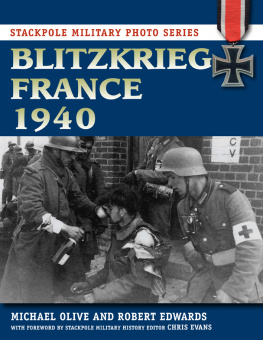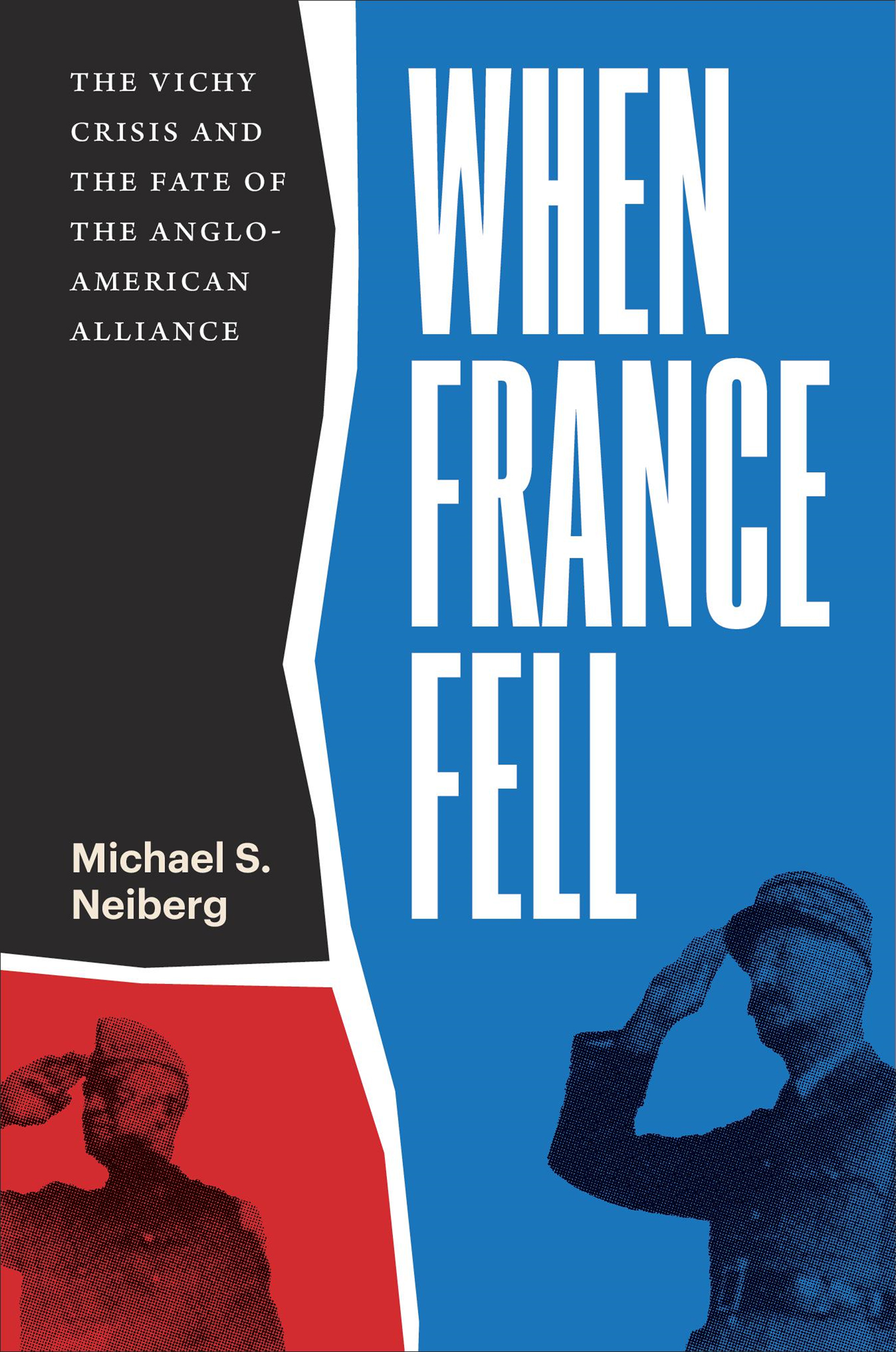Contents
Guide
Pagebreaks of the print version
WHEN FRANCE FELL
THE VICHY CRISIS AND THE FATE OF THE ANGLO-AMERICAN ALLIANCE
MICHAEL S. NEIBERG

CAMBRIDGE, MASSACHUSETTS
LONDON, ENGLAND | 2021
Copyright 2021 by Michael S. Neiberg
All rights reserved
Cover design: Matt Avery / Monograph Studios
Cover photographs of General Dwight D. Eisenhower and General Honore Giraud in Algiers, 1943, courtesy of the U.S. Office of War Information, Library of Congress.
978-0-674-25856-3 (cloth)
978-0-674-27010-7 (EPUB)
978-0-674-27011-4 (PDF)
Publication of this book has been supported through the generous provisions of the Maurice and Lula Bradley Smith Memorial Fund.
The Library of Congress has cataloged the printed edition as follows:
Names: Neiberg, Michael S., author.
Title: When France fell : the Vichy crisis and the fate of the Anglo-American alliance / Michael S. Neiberg.
Description: Cambridge, Massachusetts : Harvard University Press, 2021. | Includes bibliographical references and index.
Identifiers: LCCN 2021010189
Subjects: LCSH: FranceHistoryGerman occupation, 19401945. | FrancePolitics and government19401945. | United StatesForeign relationsFrance. | FranceForeign relationsUnited States. | United StatesForeign relationsGreat Britain. | Great BritainForeign relationsUnited States. | United StatesForeign relations20th century.
Classification: LCC DC397 .N43 2021 | DDC 940.53/22730944dc23
LC record available at https://lccn.loc.gov/2021010189
o Geoff Megargee
CONTENTS
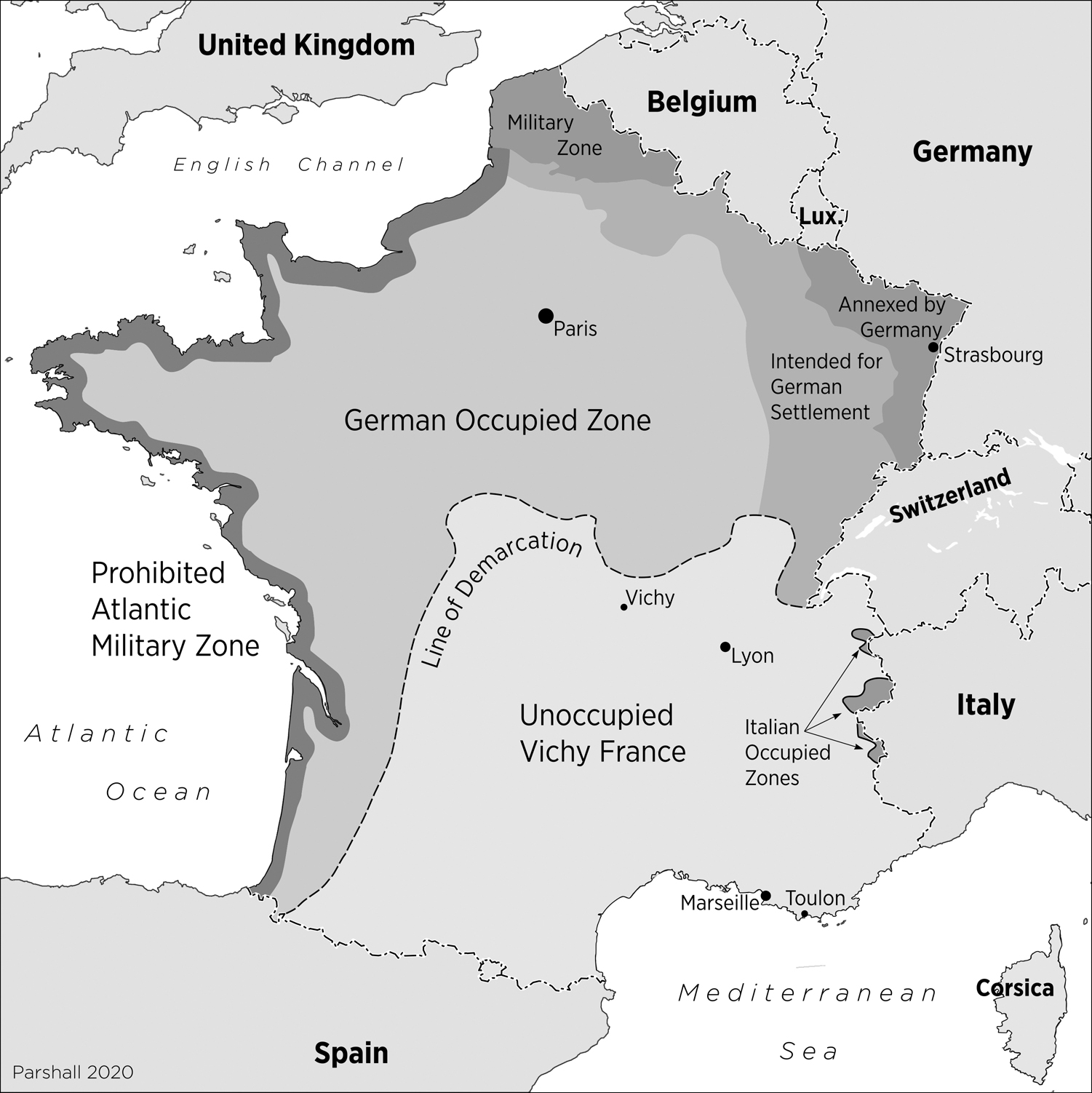
Political Division of France after the Armistice of June 22, 1940.
SECRETARY OF WAR Henry L. Stimson called it the most shocking single event of the war.
These observers were not talking about the Japanese bombing of Pearl Harbor, the discovery of the horrors of the Holocaust, or the German invasion of the Soviet Union, but the stunning defeat of France in just six weeks in May and June 1940. Although today some Americans tend to treat it as a comedic punch line or the almost inevitable consequence of a combination of French weakness and German boldness, the rapid fall of France absolutely shocked contemporaries. All American and British defense planning had begun from the assumption that the powerful French army, protected by the imposing Maginot Line, would tie the Germans down as the French had done on the western front from 1914 to 1917, giving a new Allied coalition time to organize, mobilize, and join the fight.
The British had counted on the French army almost as much as the Americans had. Lord Halifax wrote in his diary during the campaign for France that the one firm rock on which everybody had been willing to build during his tenure as secretary of state for foreign affairs from 1938 to 1940 was the French Army, and the Germans walked through it like they did the Poles.
Normally, historians in the English-speaking world have told the story of the crisis years 1940 to 1944 in Europe almost exclusively in relation to American interactions with the British, a normal response given how close the alliance between the two countries became from 1942 to 1945. The nearly mythic relationship that developed between distant cousins Franklin Roosevelt and Winston Churchill has added a personal touch to the global drama of the Second World War. This book in no way seeks to deny the significance or the long-term importance of the Anglo-American relationship in all of its complexity.
Nevertheless, leaving France out of the picture or moving it to a sideline gives only part of an answer to the infinitely complex problem of understanding the early years of the Second World War in Africa and Europe. Because so few people in the United States or Great Britain could have envisioned the fall of France in 1940, no one had planned for it. When, contrary to all expectations and predictions, it happened anyway, Americans especially panicked. The dramatic redrawing of Europes borders directly threatened the very security of the United States itself. If the Germans or Italians seized the French fleet or forced France to grant the Axis use of ports in the French empire worldwide, then the United States could find itself in an indefensible position. American strategists worried that German success might also lead to support for pro-Axis operations in Latin America or even fifth column activity inside the United States itself. The basic assumptions that underlay the sense of safety Americans felt from the crises of Europe vanished overnight.
THE WIDESPREAD PANIC throughout the United States following the fall of France had deep and lasting impacts on American society and the way the United States government understood what it had to do to ensure its own security. Never again would it trust so much of its own safety to the military power of a third party. Except for a brief period of demobilization at the end of the Second World War, American strategic plans thereafter centered on large, peacetime appropriations on defense and a standing military of a kind quite unusual in American history. Americans never again wanted to feel the sense of danger and exposure that they felt in the months after June 1940. As this book will show, the United States committed itself in this time period to spending a truly enormous amount of money to build a world-class army and navy that might restore the sense of security once provided indirectly by the French military.
The sense of panic led to fears of spies and traitors at home because Americans assumed that the Germans could not have defeated France so thoroughly and so quickly without inside help. Well before Pearl Harbor, the fall of France led to unfounded questions about the loyalty of immigrants and those with political views outside the mainstream. It convinced President Roosevelt to ignore the Supreme Court on a matter of civil liberties, and it caused a repetition of many of the extralegal acts committed by private groups and local governments during the First World War. Americas complex and multilayered relationship with the new French regime also led to the first admission by a senior American official that the United States government knew about the mass murder of Europes Jews.
At least in hindsight, some Americans claimed to have seen the problems in a rotten Third Republic France. For their part, those conservatives blamed the weak system of parliamentary rule built into the French Third Republic, often openly wishing for a more authoritarian government like the ones found in neighboring Spain, Italy, and Germany.
During the period of the so-called phony war in late 1939 and early 1940, American ambassador to France William Bullitt did what he could to help without committing American power to the conflict. He publicized his meetings with key French officials to send a signal to the Germans of the strength of Franco-American unity. Still, he saw that the deep divisions within French society left France unprepared for war. He described a Paris of sullen apathy waiting in expectation of some dire calamity to come. Robert Murphy agreed, finding Parisians just too tired to face the grim reality of another war and Frances leaders inept and unrealistic. They allowed themselves to believe that their own line of fortifications had forced Germany to look first to Poland in 1939 and then to Norway in 1940, thus sparing France as a battlefield in this war. This kind of wishful strategic thinking proved terribly wrong, as Murphy and Bullitt came to realize, maybe even before most Frenchmen and Frenchwomen themselves did.



